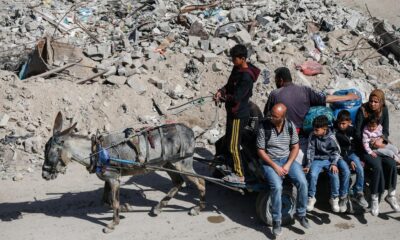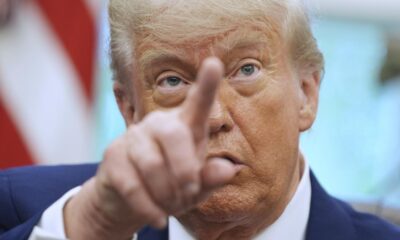Members of Donald Trump’s presidential transition team are preparing for the United States to withdraw from the World Health Organization at the beginning of his second term, as revealed by a health law expert knowledgeable about the discussions.
“I have reliable information that he intends to withdraw, most likely on Day One or early in his administration,” stated Lawrence Gostin, professor of global health at Georgetown University in Washington and director of the WHO Collaborating Center on National and Global Health Law.
The Financial Times was the first to report on the plans, citing two experts. The second expert, former White House COVID-19 response coordinator Ashish Jha, was not available for immediate comment.
The Trump transition team has not responded to a Reuters request for comment.
This proposed plan, in line with Trump’s longstanding criticism of the U.N. health agency, would signify a significant shift in U.S. global health policy and further distance Washington from international efforts to combat pandemics.
Trump has nominated several critics of the organization to key public health positions, including Robert F. Kennedy Jr., a vaccine skeptic who is being considered for the role of secretary of Health and Human Services, which supervises major U.S. health agencies such as the CDC and FDA.
In 2020, Trump initiated the year-long withdrawal process from the WHO, but his successor, President Joe Biden, reversed the decision six months later.
Trump has asserted that the agency did not hold China accountable for the early spread of COVID-19. He has consistently referred to the WHO as a puppet of Beijing and pledged to redirect U.S. contributions to domestic health initiatives.
A WHO spokesperson declined to provide a direct comment but directed Reuters to statements made by WHO Director-General Tedros Adhanom Ghebreyesus during a press briefing on December 10, where he addressed concerns about the potential withdrawal of the U.S. from the organization.
At that time, Mr. Tedros emphasized the importance of providing the U.S. with time and space for the transition. He also expressed confidence that countries could finalize a pandemic agreement by May 2025.
Critics caution that a U.S. withdrawal could undermine global disease surveillance and emergency response systems.
“The U.S. would lose influence and authority in global health, allowing China to step in and fill the void. I cannot envision a world without a robust WHO, but a U.S. withdrawal would significantly weaken the organization,” Mr. Gostin remarked.
Published – December 25, 2024 02:28 pm IST






































